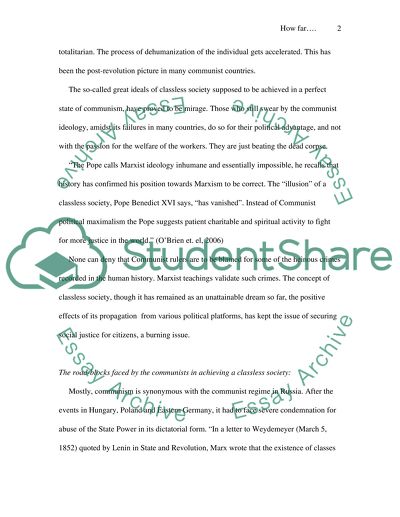Cite this document
(Creating a Classless Society by Communism Essay Example | Topics and Well Written Essays - 1500 words, n.d.)
Creating a Classless Society by Communism Essay Example | Topics and Well Written Essays - 1500 words. https://studentshare.org/politics/1553039-how-far-did-communism-manage-to-proceed-along-the-road-to-a-classless-society
Creating a Classless Society by Communism Essay Example | Topics and Well Written Essays - 1500 words. https://studentshare.org/politics/1553039-how-far-did-communism-manage-to-proceed-along-the-road-to-a-classless-society
(Creating a Classless Society by Communism Essay Example | Topics and Well Written Essays - 1500 Words)
Creating a Classless Society by Communism Essay Example | Topics and Well Written Essays - 1500 Words. https://studentshare.org/politics/1553039-how-far-did-communism-manage-to-proceed-along-the-road-to-a-classless-society.
Creating a Classless Society by Communism Essay Example | Topics and Well Written Essays - 1500 Words. https://studentshare.org/politics/1553039-how-far-did-communism-manage-to-proceed-along-the-road-to-a-classless-society.
“Creating a Classless Society by Communism Essay Example | Topics and Well Written Essays - 1500 Words”. https://studentshare.org/politics/1553039-how-far-did-communism-manage-to-proceed-along-the-road-to-a-classless-society.


